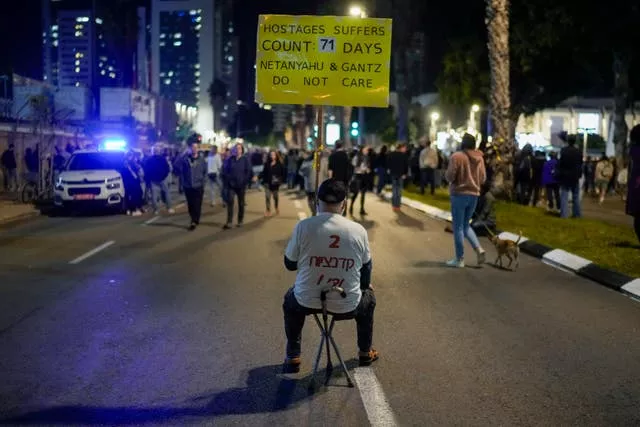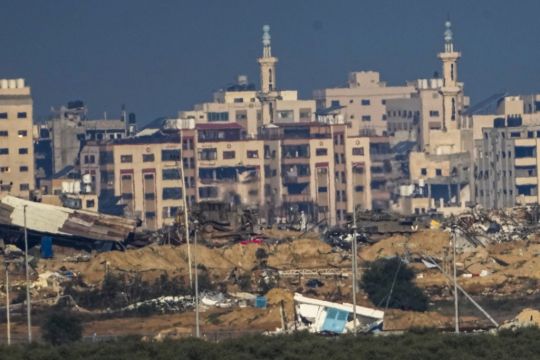Israel pressed ahead with its Gaza offensive on Sunday after a series of shootings, including of three hostages who were shirtless and waving a white flag, raised questions about its conduct in the 10-week-old war that has brought unprecedented death and destruction to the coastal enclave.
Gaza remained under a communications blackout for a fourth straight day – the longest of several outages over the course of the war, which aid groups say complicate rescue efforts after bombings and make it even more difficult to monitor the war’s toll on civilians.
Israel could come under further pressure to scale back major combat operations when US Defence Secretary Lloyd Austin visits this week.

Washington has expressed growing unease with civilian casualties and the mass displacement of 1.9 million Palestinians – nearly 85% of Gaza’s population – even as it has provided vital military and diplomatic support to its close ally.
The air and ground war has flattened vast swathes of northern Gaza and driven most of the population to the southern part of the besieged territory, where many are packed into crowded shelters and rain-swamped tent camps.
Israel has continued to strike what it says are militant targets in all parts of Gaza.
It has vowed to continue operations until it dismantles Hamas, which triggered the war with its October 7 attack on southern Israel, in which militants killed 1,200 people, mostly civilians.
Israel has also vowed to return the roughly 129 hostages still held in Gaza.
Israel and the US meanwhile remain far apart on who should run Gaza after the war.
Washington wants to see a unified Palestinian government in Gaza and the West Bank as a precursor to eventual Palestinian statehood. A two-state solution enjoys broad support from the international community, which views it as the only way to resolve the decades-old conflict.
The internationally recognised Palestinian Authority, which is deeply unpopular among Palestinians, has said it would only return to Gaza as part of a comprehensive solution that creates an independent state in the West Bank, Gaza and east Jerusalem, territories Israel seized in the 1967 war.

Benjamin Netanyahu’s government, which is deeply opposed to Palestinian statehood, has rejected that scenario, saying it will retain open-ended security control over Gaza after defeating Hamas.
It is also opposed to any withdrawal from east Jerusalem, which Israel annexed in a move not recognised internationally, or the West Bank, where more than 500,000 Jewish settlers live in scores of growing settlements, and which is home to some three million Palestinians.
Hamas, which has pledged to destroy Israel, said the October 7 attack was a response to Israel’s actions in all three territories.
Mr Netanyahu said on Saturday that he was “proud to have prevented the establishment of a Palestinian state” during his more than 16 years in power going back to the late 1990s.







